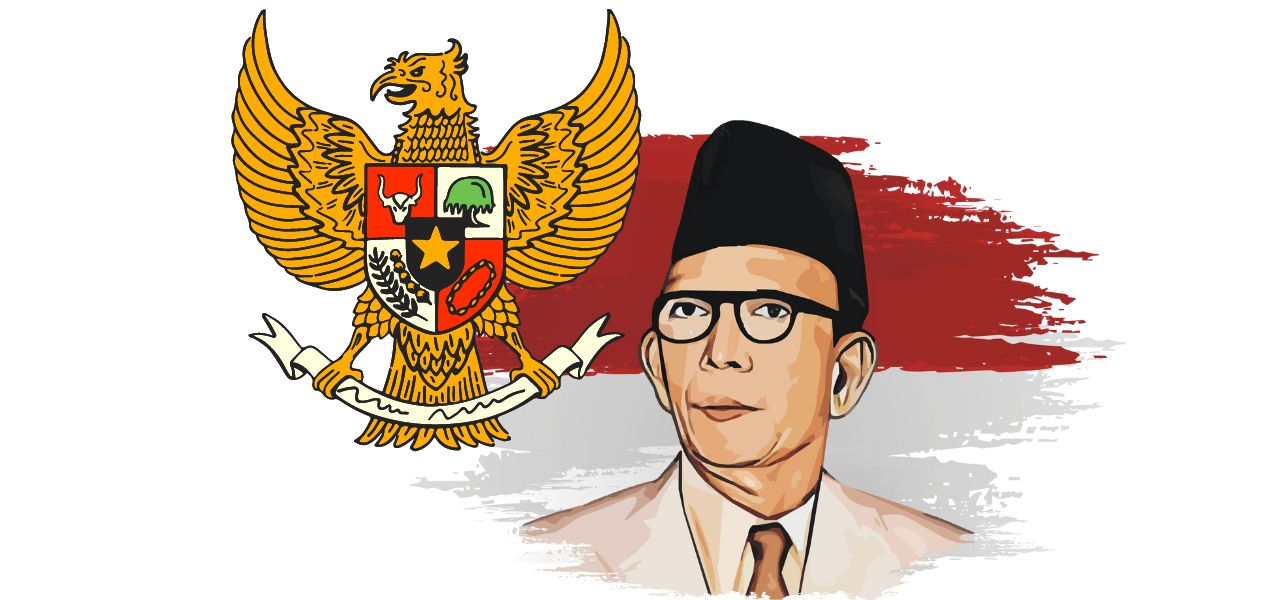By: Ahmad Hadid
Every year on June 1st, we celebrate Pancasila Day (the birthday of Indonesia’s Five Principles), which serves as a reminder of the thoughtful deliberations the country’s founders had when determining the framework for the state. It not only helps us understand this memorial by pointing out the ideas of national leaders, but it also encourages us to consider those ideas in light of the difficulties facing our country now. One of them is how Pancasila’s ideals can aid in the eradication of women’s oppression, violence, and injustice.
When recalling the history of Pancasila, in fact, the words were unintentionally spat out by Soekarno. In Ki Hajar Dewantara’s book Pantjasila (1950), Dr. Radjiman Wedyodiningrat testifies that during the 1945 Indonesian Independence Preparatory Committee, Pancasila was spoken spontaneously rather than planned from Bung Karno’s mouth, as if the words were inspiration that came straight from the heart. Then the participants in the discussion, who had been arguing genuinely and boldly from the start, acknowledged the statements as a legitimate reality and passed them with confidence.
Much time and effort are expended in the exhausting debate concerning the foundation of the nation. A mirror representing the goals, aspirations, and reality of every Indonesian. Indonesian people genuinely desire to be freed from cruel, oppressive, and harmful colonialism. Upon completion, Pancasila is based on five fundamental principles namely divinity, humanity, nationality, people’s sovereignty, and justice.
The concept of divinity is invoked to highlight the religious life of the Indonesian people, who vary from the country of materialistic colonists who valued materialistic life above all else and denigrated iiner life. The principle of humanity confirms the civilization of the nation and keeps away from violence. The principle of nationality affirms the rejection of imperialism and colonialism, which are pervasive in Indonesia and the rest of the world. The notion of people’s sovereignty upholds the opposition to ideologies that consistently stifle the development and vitality of the populace in terms of politics, economy, society, and culture. Ultimately, the social justice concept validates constructive and tangible goals to achieve everyone’s safety and well-being.
Ki Hajar Dewantara conducted a reading and interpretation of Pancasila and called it his own wirama (rhyms). Ki Hajar asserts that humanity is Pancasila’s fundamental component. Humanity is the essence of Pancasila. He described, in every Pancasila point confirmed by the suffix of humanity. Divinity in humanity. Nationality is determined by humankind. The rightful sovereignty of those who uphold human rights. Social justice is in line with what mankind needs. And the nobility of living a humanitarian life, which forms the foundation and is the parent of all principles.
According to Ki Hajar, comprehending and applying Pancasila with these humanistic rhyms will inspire Indonesian people to uphold values that do not contradict humanity. Among the results of his interpretations are as follows:
- Do not allow nationalism to be violated or to go against human rights. Nationalism is a general form of humanity.
- Do not let nationalism oppress the life of human being (both physically and psychologically) by recalling the principles of social justice and people’s sovereignty.
- May the holiness found in the principle of divinity be extended to all of us.
That’s how the National Teacher would teach us about the wirama of Pancasila with a humanitarian interpretation. By pivoting on humanitarian principles, we can more easily realize what problems still pose challenges to the objectives of Pancasila in the context of nationalism today.
Sexual violence is, in my opinion, the issue that is seriously harming humanity today. Even though some sexual violence may seem insignificant, it can have extremely dangerous physical, psychological, and even lethal effects.
Sexual violence is a very eerie phenomenon that affects people’s lives and happens every day, anywhere, anytime. The records of Komnas Perempuan during the past five years demonstrate the widespread occurrence of sexual violence in a variety of settings, including safe and private ones.
Sexual violence happens in public spaces and private ones, educational settings, religious institutions, and even places of worship. This complicated issue still hasn’t been solved, despite the fact that the government and several social organizations have created regulations, taken action, and socialized against sexual violence. This demonstrates how sexual violence has turned into a catastrophe for humanity.
The massive sexual violence that occurred in this nation attests to how the Pancasila spirit of resistance and freedom from all sorts of humanitarian crime has not been fully realized.
Sexual violence is a cruel offense. Sexual violence occurs when someone acts in a way that coerces, oppresses, or undermines the authority of another person sexually because they believe they have the upper hand. This diminishes human dignity and is completely at odds with gentleness and noble values.
The values of Pancasila with humanitarian rhymes must continue to be embedded and nurtured in every heart of the Indonesian people, so that it can promote a kind and compassionate understanding of people without resorting to violence in any of the exchanges that make up the nation and state. Lastly, the momentum behind Pancasila Day could serve as a reminder and reinforcement of our resolve to combat sexual violence. It is our collective responsibility to eradicate sexual violence in this nation. []
This article was translated by Napol Riel.
